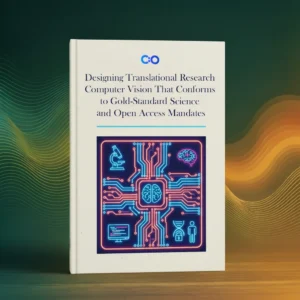When it comes to health grants, there are as many as one can imagine. Every institute in the world regardless of its affiliations with major health funding institutes is always welcoming medical researchers and professionals to apply their medical findings and intelligence into practice. Some of the major institutes that allow all kinds of medical research to be funded fall under the National Institutes of Health. Hundreds of grants are available to research experts from around the world, and all the details and information are available on the NIH website.
Here are some of the grants to look forward to in 2019-2020. These grants will be discussed, revealing all kinds of information, such as the type of grant, objectives, instructions, and expiration date.
Dissemination and Implementation Research in Health (R01 Clinical Trial Option) PAR-19-274
- Type of Grant: R01
- Description: This grant aims to support innovative approaches that are associated with the identification, understanding, and development of strategies to overcome barriers such as adoption, adaptation, integration, scale-up, and sustainability of evidence-based approaches including tools, guidelines, policies, rules, and regulations, etc. Incidentally, it helps to understand sufficient arguments and circumstances that help reduce the impacts of interventions that are pronounced inefficient or harmful.
To make sure the said goals are achieved, Dissemination and Implementation (D&I) research is taken into consideration which helps understand the figures and facts of distribution of information and intervention, as well as, the strategies to implement evidence-based interventions in clinics and communities, wherever possible.
- Objectives, Purpose, and Scope: The grant offers researchers to help improve D&I techniques such as interventions including diagnostic, prevention, early detection, disease management interventions, quality improvements, etc. in the sphere of practice, that is, social communities and clinics. Advanced D&I research methods and measures are highly encouraged. Some of the many relevant research topics include:
- Studies focus on testing theories, models, and frameworks associated with D&I.
- Development of research methods, study designs, and analytic approaches for studying D&I.
- Studies of cost-effective D&I strategies.
- Studies and development of D&I processes.
- Participating Institutes & Centers: Institutes and centers that are participating in this grant are:
- NCI
- NHLBI
- NHGRI
- NIA
- NIAAA
- NIAID
- NIAMS
- NICHD
- NIDCD
- NIDCR
- NIDA
- NIEHS
- NIMH
- NINDS
- NINR
- NIMHD
- NCCIH
- ODP
- OBSSR
- ORWH
- Expiration Date: May 8, 2022
- Application Instructions: The application can be submitted using one of the following methods:
- NIH ASSIST System helps submit and track the application
- Institutional System-to-System (S2S) helps prepare and submit the application to Grants.gov while eRA Commons tracks the application
- Use Grants.gov to prepare and submit an application while eRA Commons to track the application
PHS 2019-02 Omnibus Solicitation of the NIH for Small Business Technology Transfer Grant Applications (Parent STTR `{`R41/R42`}` Clinical Trial Not Allowed)
- Type of Grant: R41/R42
- Description: In order to empower small businesses and non-profit institutes, Federally-funded institutions of research and research & development are taking the initiative in helping provide new ideas and technology through the STTR program. The STTR program is a three-phase program out of which the first two phases, I and II are funded by STTR.
Phase I ensures the establishment of the scientific and technical merit, as well as, the feasibility through which Research or Research & Development take place. Phase II paves the way for the continuation of the Research or Research & Development (R/R&D) of the first phase. Phase III, not affiliated with STTR funds, allows small business concerns (SBC) to carry on the commercialization of the results achieved from phases I and II through federal or non-federal funds.
- Objective, Purpose, and Scope: To make sure that small businesses and organizations (non-profit) are able to handle any situation both dire and mild, the STTR program through its three phases combines the latest technological and scientific approaches to help benefit small businesses and organizations.
- Participating Institutes and Centers: The following institutes are included in this grant:
- NCI
- NEI
- NHLBI
- NHGRI
- NIA
- NIAAA
- NIAID
- NIAMS
- NIBIB
- NICHD
- NIDCD
- NIDCR
- NIDDK
- NIDA
- NIEHS
- NIMH
- NINDS
- NINR
- NIMHD
- NLM
- NCCIH
- NCATS
- ORIP
- Expiration Date: April 7, 2020
- Application Instructions:
- NIH ASSIST can be used to prepare, submit, and track the status of the application.
- Institutional System-to-System (S2S) can be used to prepare and submit the application on Grants.gov. To track the status of the application, visit eRA Commons.
- Use Grants.gov workspace to prepare and submit the application. To track the status of the application, visit eRA Commons.
Pragmatic Trials of Managing Multimorbidity in Alzheimer’s disease (R61/R33 Clinical Trials Required)
- Type of Grant: R61/R33
- Description: Multimorbidity, having two or more two chronic diseases can be challenging for not just the patient but the involved medical professionals and healthcare systems. This challenge adapts into a formidable task as patients with Alzheimer’s or Alzheimer’s related dementia face such issues. Patients suffering from dementia often have four chronic diseases on an average scale. These chronic challenges may lead to heart failure, hip fracture, heart disease, and other fatal diseases while facing diabetes and hypertension as the most common form of chronic illness.
To make sure such issues are improved and facilitated with the latest medical findings and research, this grant is a continuation of the previous two grants (RFA-AG-17-059) and (RFA-AG-18-028). This grant is divided into two phases. Phase 1 deals with trial planning and feasibility, while Phase 2 specializes in the conduct of the pragmatic trials.
- Objective, Purpose, and Scope: The purpose of this FOA revolves around the pragmatic trial and effectiveness of the strategies that are included in the program. Certain approaches are to be considered such as disease-drug interactions, disease-disease interactions, and/or drug-drug interactions; comparison of the effectiveness of involved strategies; interactions between treatments or interventions of two different medical conditions; feasibility and implementation of each management decision and its impacts on the patients, medical professionals, and health system.
Once the milestones once achieved, they will have to go through the R33 implementation phase after having accomplished the R61 planning phase. R61 phase will have to be reviewed and administered in order to proceed to R33.
- Participating Institutions and Centers: National Institute of aging
- Expiration Date: February 04, 2020
- Application Instructions:
- NIH ASSIST System helps submit and track the application
- Institutional System-to-System (S2S) helps prepare and submit the application to Grants.gov while eRA Commons tracks the application
- Use Grants.gov to prepare and submit an application while eRA Commons tracks the application.
Provocative Questions (PQs) in Multiple Myeloma Disparities Research (R01 Clinical Trial Optional)
- Type of Grant: R01
- Description: The proposal looks at the subject of Multiple Myeloma and deals with six particular questions related to the MM. Questions involved in this proposal focus on:
- Risk factors related to Monoclonal Gammopathy of Undermined Significance (MGUS) incidence among different races.
- Characteristics of immune status and response with respect to ethnic differences for MGUS incidence and whether they include multiple myeloma.
- Mutational signs of early-onset versus late-onset MM on a diverse scale as far as ethnic patients are concerned.
- Factors regarding the age-adjusted incidences with respect to the female and male gender and if such factors participate in early MGUS.
- The approval and possibility mouse or other preclinical models to generate characteristics of various stages from MGUS to SMM to MM
- The involvement of racial differences in natural history and response to MM therapies.
- Objective, Purpose, and Scope: This FOA deals with the subject of Multiple Myeloma (MM) and invites researchers from around the world to dedicate their resources and ideas in helping solve and address questions related to MM and disparities research identified as the NCI Multiple Myeloma Disparities Provocative Questions (MMD PQs). These questions, as complex and diverse as they are, do not represent the priorities set by NCI in dealing with Multiple Myeloma. In fact, this grant helps researchers help find answers to the questions related to that are often left unclarified and are identified with paradoxes in MM. The grant offers six Multiple Myeloma Provocative Questions representing the diverse field of the myeloma disparities research. These questions are expected to bring medical researchers to conclude their studies with the latest and feasible method to find appropriate solutions. Multidisciplinary researchers are highly encouraged to apply.
- Participating Institutes and Centers: National Cancer Institute
- Expiration Date: November 16, 2020
- Application Instructions:
- NIH ASSIST System helps submit and track the application.
- Institutional System-to-System (S2S) helps prepare and submit the application to Grants.gov while eRA Commons tracks the application.
- Use Grants.gov to prepare and submit the application while eRA Commons to track the application.
Focused Technology Research and Development (R01 – Clinical Trial Not Allowed)
- Type of Grant: R01
- Description: The idea of this FOA is to develop the necessary technological tools to obtain basic biomedical knowledge. The project demands technical innovation in the biomedical field for the long term. The products utilized in this project will vary depending on the usage of the equipment such as prototype functioning instruments, synthetic approaches, biomedical equipment, etc. however, application of the specific biomedical questions is not going to be considered a part of the program. Furthermore, the necessity of the intended technology must be thoroughly demonstrated in order to justify the cause.
- Objective, Purpose, and Scope: To ensure the usage of biomedical equipment and practice is being implemented keeping in mind the future and current prospects that are related to biomedical technology.
- Participating Institutes and Centers:
- National Institute of General Medical Sciences (NIGMS)
- National Center of Complementary and Integrative Health (NCCIH)
- Expiration Date: May 08, 2022
- Application Instructions:
- NIH ASSIST System helps submit and track the application.
- Institutional System-to-System (S2S) helps prepare and submit the application to Grants.gov while eRA Commons tracks the application.
- Use Grants.gov to prepare and submit the application while eRA Commons to track the application.
References
- NIH Guide to Grants and Contracts. Retrieved From https://grants.nih.gov/funding/searchguide/index.html#/
- (2019, May 8). PAR-19-274: Dissemination and Implementation Research in Health (R01 Clinical Trial Option). Retrieved From https://grants.nih.gov/grants/guide/pa-files/PAR-19-274.html
- (2019, May 7). PA-19-270: PHS 2019-02 Omnibus Solicitation of the NIH for Small Business Technology Transfer Grant Applications (Parent STTR [R41/R42] Clinical Trial Not Allowed). Retrieved From https://grants.nih.gov/grants/guide/pa-files/pa-19-270.html
- (2019, May 9). RFA-AG-20-029: Pragmatic Trials of Managing Multimorbidity in Alzheimer’s disease (R61/R33 Clinical Trials Required). Retrieved From https://grants.nih.gov/grants/guide/rfa-files/RFA-AG-20-029.html
- (2019, May 13). PAR-19-279: Provocative Questions (PQs) in Multiple Myeloma Disparities Research (R01 Clinical Trial Optional). Retrieved From https://grants.nih.gov/grants/guide/pa-files/PAR-19-279.html
- (2019, April 12). PAR-19-253: Focused Technology Research and Development (R01 – Clinical Trial Not Allowed). Retrieved From https://grants.nih.gov/grants/guide/pa-files/PAR-19-253.html


